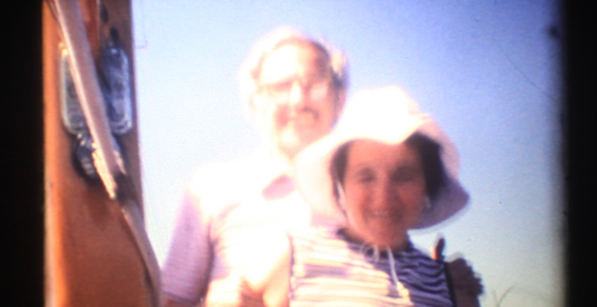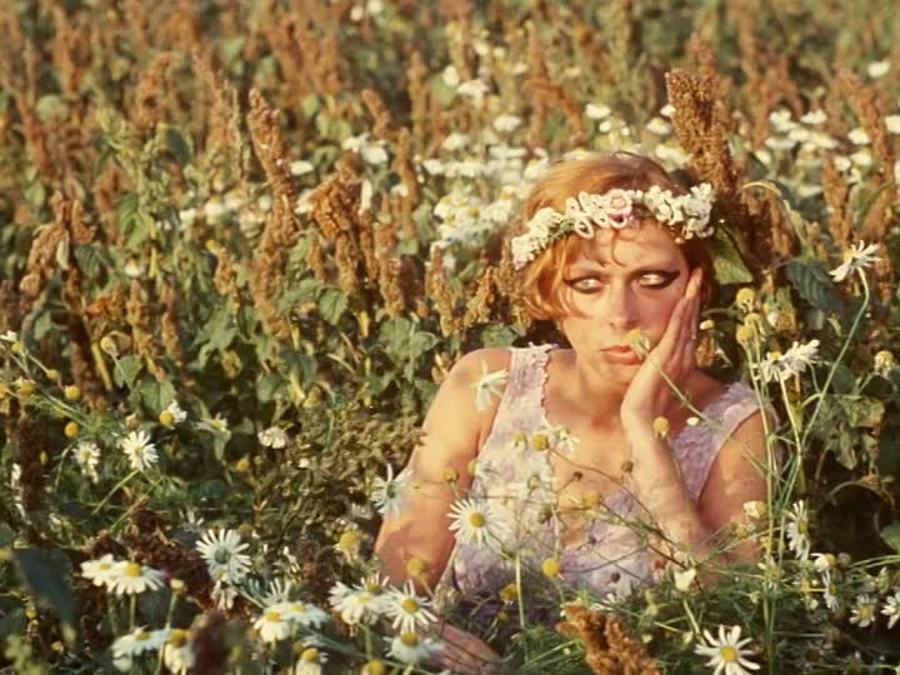Editor’s note: Fandor has initiated an innovative collaborative project with a group of five FIX filmmakers to create original films under the ‘FIXshorts’ banner. From over thirty submitted script-and-budget proposals, Fandor chose five diverse and dynamic short film projects to help develop from start (funding) to finish (distribution and promotion). Today marks the third of five FIXshorts filmmaker Q&As, which, we imagine might provoke even more questions than answers—as we hope you’ll explore their work further on their Kickstarter campaign pages.
Maya Erdelyi is at work on Anyuka, which she describes as a story of tragedy and triumph based on her Hungarian grandmother’s journey to America as a World War II refugee.
Keyframe: Were are you from?
Maya Erdelyi: I grew up in New York City. I’m a first generation American, born to a Hungarian psychologist and a Colombian poet.
Keyframe: What first inspired you to make films?
Erdelyi: I think making films is a pretty natural extension from making drawings and creating worlds on paper. My first drawings were created with pencil on the wall next to my bed where I would draw scenes from my dreams as a child.
Keyframe: What inspired you to make this FIXshorts film?
Erdelyi: Upon the passing of my grandmother last summer, I rescued a large box with many hours of Super 8 footage of the third chapter of her life: a triumphant achieving of the elusive ‘American Dream’—a happy, lasting marriage; a large family, home-ownership, etc. It struck me that most people upon looking at this footage would be fooled by the normalcy of the images (the road trips, birthday parties, family gatherings), the happy memories, not knowing what it took for my grandmother to get there. I see these Super 8 films as a fascinating historical documentation of the other side of Holocaust stories; the story of what happened after the War was over. I believe that Anyuka is a singular American story of one woman’s survival and ultimate triumph over tragedy. And ultimately, I felt that I had gold on my hands and felt compelled to do something with this incredible footage.
Keyframe: What three directors or artists most influenced you (and why) ?
Erdelyi: Corita Kent (the rebel nun artist from 1960’s LA)—for her work as a teacher and artist—urging us to look at the world around us as art. One of her quotes is:
‘Look at everything. Pretend you are a microscope. Make a movie with your eyes. Think of everything as an experiment. Nothing is a mistake.
There is no win and no fail, there’s only make.’
Vera Chytilová, Czech surrealist director of Daisies. I love her use of montage, color and absurdity. She’s a complete original. Her freedom and strangeness is liberating.
I am fascinated by the vision and life of outsider artist Leonard Knight who made his own colorful mountain in the desert of Southern California. He created his own world.
I like the Steve Jobs quote, ‘Creativity is just connecting things.’
Keyframe: Who do you hope watches this film?
Erdelyi: People who love their grandmother. People interested in stories of tragedy and triumph. People interested in family stories and strong women.





